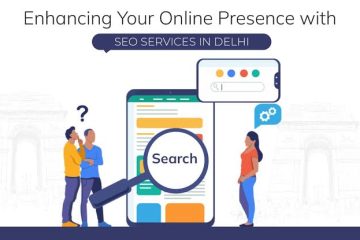Traffic violations can have a big effect on many parts of your life, especially when it comes to money. Getting a traffic ticket can really hurt you because it can cause your insurance rates to go up. Traffic tickets and violations are seen by insurance companies as signs of risky driving, which can make the cost of coverage go up.
It’s important to know how tickets for speeding, reckless driving, or other traffic charges affect your insurance if you want to plan your financial future.
How Traffic Violations Affect Insurance Premiums
A driving violation is seen as a red flag that raises the risk, which affects how much you pay for insurance. Your past driving records help insurance companies guess how likely it is that you will have crashes or traffic tickets in the future. Receiving a ticket tells the insurance company that you might be a higher risk to cover, which usually means that your premiums will be higher.
It depends on the type of violation how much your insurance rates will go up. Parking tickets and other minor offenses may not have a visible effect, but more serious offenses like speeding, reckless driving, or DUI can cause big increases in insurance costs.
In general, insurance companies will examine several factors:
- Severity of the violation: A speeding ticket for going 10 mph over the limit may result in a slight increase in premiums, while excessive speeding or a DUI conviction can lead to much higher rates.
- Frequency of violations: If you have multiple traffic violations on your record, the cumulative impact can be significant. Each new ticket adds to your risk profile.
- State-specific regulations: The impact of a traffic violation on your insurance premiums can vary depending on the state in which the violation occurred. In states like New Jersey, where NJMCDirect offers an online portal for paying traffic fines, understanding local regulations is important.
What is NJMCDirect?
You may know about NJMCDirect if you’ve ever gotten a traffic ticket in New Jersey. It’s an online system that lets you pay your fines quickly and easily. This service, offered by the New Jersey Municipal Court system, is meant to make it easier for people to pay their traffic tickets without having to go to court.
You can see information about your traffic ticket and pay costs for things like speeding, running a red light, and other common offences through NJMCDirect. This service makes paying traffic tickets easier, but paying a ticket through NJMCDirect does not get rid of the effect the violation has on your insurance. Even after the violation is handled and added to your driving record, it may still affect how much your insurance costs.
Getting rid of traffic tickets quickly with NJMCDirect is possible, but it’s important to know that just because you pay your fines doesn’t mean you don’t have to deal with the effects. The ticket will still be on your record, and your insurance company will probably use that to figure out your rates in the future.
Does a Traffic Ticket Affect Your Insurance?
A common question many drivers have is, “Does a traffic ticket affect your insurance?” The short answer is yes, in most cases. However, the extent of the impact depends on several factors including the severity of the violation, your driving history, and the specific policies of your insurance provider.
Here’s a breakdown of how different types of traffic violations can affect your insurance:
Minor Traffic Violations
If you break the law for small reasons like not signaling or going a little over the speed limit, your insurance rates may go up a little or not at all, based on your past record. A lot of insurance companies will forgive accidents or be more understanding with first-time offenders who have a clean driving record otherwise. In this case, a small traffic ticket might not make a big difference in your rates, but it will still show up on your driving record.
Speeding Tickets
One of the most common road violations is speeding, which can have a moderate to major effect on your insurance. If you were caught going a few miles per hour over the speed limit, your rate might not go up by much. If you were going too fast, like 20 mph or more over the speed limit, the results can be much worse. A speeding ticket tells your insurance company that you are willing to take chances on the road, which could make you more likely to get into an accident.
Reckless Driving
Careless driving is a serious offense that can make your insurance rates go up by a lot. Reckless driving is a serious crime for insurers because it shows that you are a high-risk driver. When someone drives carelessly, they might aggressively change lanes, tailgate, or speed in a way that puts other people in danger. Some states even consider reckless driving a crime, which can stay on your record for years and cost you money in the long run.
DUI/DWI Convictions
Driving under the influence (DUI) or driving while intoxicated (DWI) is one of the worst traffic crimes, and your insurance rates will almost always go up by a lot in response. A lot of the time, insurers will drop your coverage completely, leaving you with no choice but to find much more expensive high-risk insurance. A DUI arrest can also mean other legal consequences, like losing your license, doing community service, or even going to jail.
Accumulation of Points
A lot of states keep track of driving violations with points. Each violation costs you a certain number of points on your driving record. Getting too many points can cause your insurance rates to go up. Your license could be canceled or taken away if you get too many points in a certain amount of time. On NJMCDirect, you can find out how many points are given for different traffic crimes in New Jersey.
Reducing the Impact of Traffic Violations on Insurance Premiums
While it’s clear that traffic violations can increase your insurance costs, there are steps you can take to minimize the impact:
- Take a defensive driving course: Many states and insurance companies offer discounts or point reductions for completing a defensive driving course. This can help offset the impact of a traffic violation on your insurance premiums.
- Contest the ticket: In some cases, it may be worth contesting a traffic ticket, especially if you believe it was issued in error. By challenging the ticket in court, you may be able to reduce or eliminate the points added to your record, thus minimizing the impact on your insurance.
- Shop around for insurance: After receiving a traffic violation, it may be a good idea to compare insurance rates from different providers. Some insurers are more forgiving of traffic tickets than others, and switching to a new provider could help you save on premiums.
- Maintain a clean driving record: If you avoid additional violations, the impact of a single ticket will lessen over time. Most insurance companies only look at violations from the past three to five years, so maintaining a clean driving record moving forward can help lower your rates over time.
Conclusion
People who break traffic laws have to deal with a lot more than just fines and jail time. When you get a major violation like DUI or risky driving, it can have a big effect on your insurance rates. It might be easier to deal with traffic tickets if you use services like NJMCDirect, but keep in mind that your insurance company will still charge you more if you have violations.
If you’re wondering, “Does a traffic ticket affect your insurance?”, the answer is typically yes. However, by understanding the factors that influence how traffic violations affect insurance rates and taking proactive steps to reduce the impact, you can better manage your driving record and insurance costs over time.



